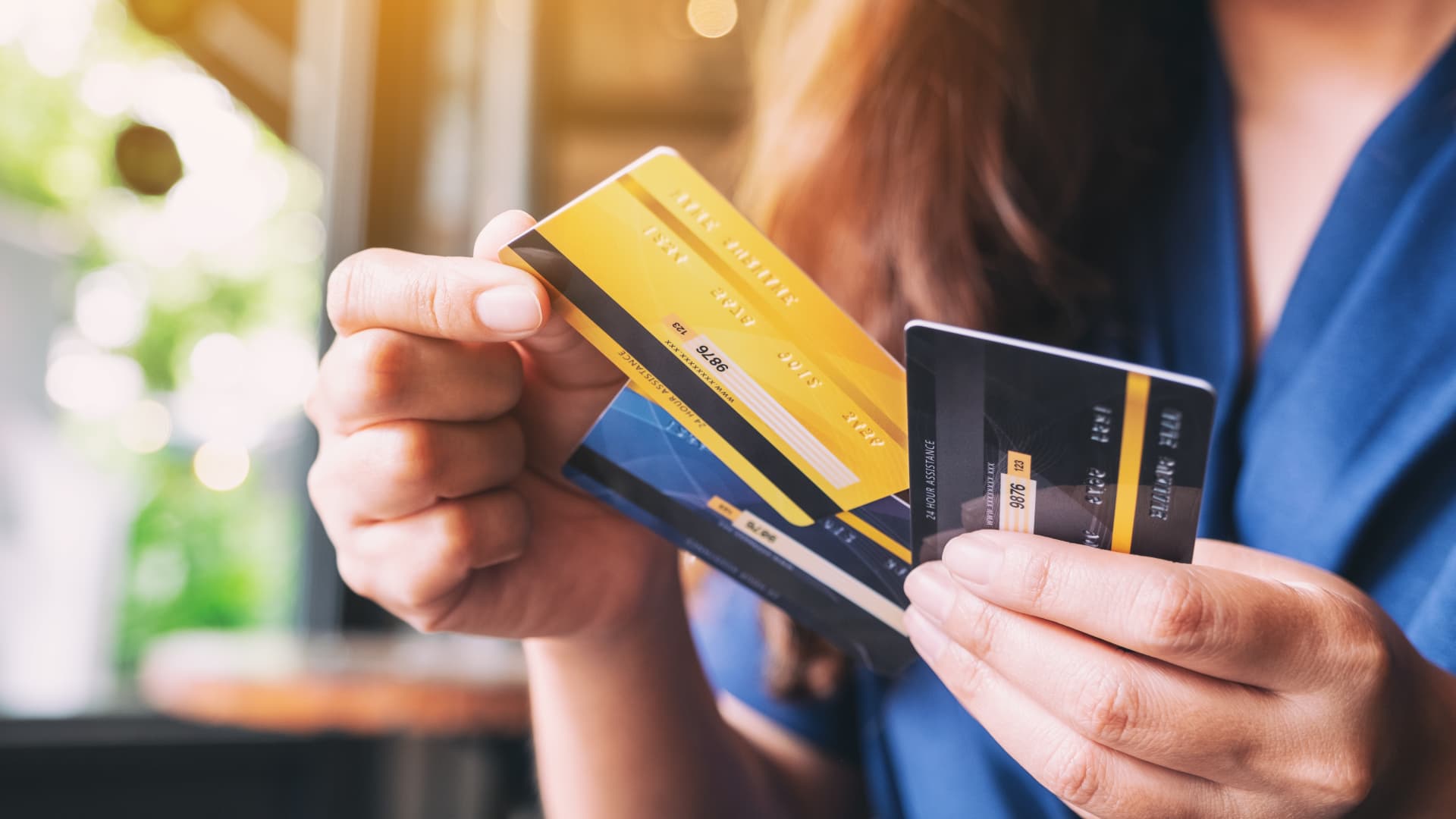Interest rates are set to rise again, making it a good time to pay off high-cost credit card debt as soon as possible.
Annual percentage rates on credit cards are currently just over 16%. Because the Federal Reserve is in a rate hiking cycle, with half-point increases on the table for every remaining meeting this year, APRs are likely to go up.
They could even overtake the current record high of 17.87% set in April 2019.
More from Invest in You:
What consumers plan to cut back on if prices keep rising
Inflation may have negative impact on American’s long-term goals
As inflation grips small businesses, here’s how they are responding
That could pose a problem for Americans with outstanding bills. Credit card balances reached $841 billion in the first three months of the year, according to a report from the Federal Reserve Bank of New York. In the same timeframe, 229 million people opened new credit card accounts, an increase from the previous quarter.
“The biggest key to get out of credit card debt is to not be paying a high interest rate on that debt,” said personal finance expert Suze Orman.
Look for lower interest rates
One of the first steps Orman advises for those looking to chip away at credit card debt is to see if you can lower your interest rates.
Doing this will help you pay off your debt faster and make sure more of your money is going toward knocking out what you owe, instead of accumulating interest.
There are a few ways to do this, such as a balance transfer to another credit card with 0% interest rates for a certain period, taking out a personal loan with a lower interest rate to pay off your credit balance or working with credit counselor to consolidate your debt with a lower rate.
These options will depend on your personal situation and your credit score, Orman said. For those with lower scores, she recommends reaching out to the National Foundation for Credit Counseling for assistance in lowering your interest rate and getting on a payment plan.
Pick a method
If you are going to pay off your debt while keeping your cards open, there are generally two methods that people use to wipe away a balance, according to John Scherer, a certified financial planner and founder of Trinity Financial Planning in Madison, Wisconsin.
One is to round up all your outstanding debts by balance and start by paying off the smallest one.
“Then you get momentum,” said Scherer. “You see some of those things fall off the books, and it feels really good.”
The second model, which Scherer says is personally what he recommends to clients, is to look at all your outstanding debt and pay off the one with the highest interest rate first. Over time, this means you’ll pay less money to knock out your debt because you’re tackling the highest interest rates right away.
Orman also recommends this approach. She says to round up your credit card debt and add up all the minimum payments due each month. From there, add 20% or more to your total payment and apply it to the debt with the highest interest rate. Once that’s paid off, roll that extra payment to the next card, and then the next until everything is wiped away.
Build up personal savings
In addition to paying down your debt, make sure that you’re putting aside some money to build up emergency reserves, said Scherer. This is to keep you from accumulating more debt while you’re working to pay off your existing balance.
“You get it paid off, but then the transmission blows or the refrigerator takes a dump on you and now you’re back on the credit card for another thousand bucks,” he said.
If you want to keep your credit cards open so you don’t mess up your credit score but not use them as much, Orman suggests hiding them from yourself.
“What you might want to do is take all your credit cards, put them into a plastic bag and put them in the freezer,” she said. “Do not tempt yourself.”
SIGN UP: Money 101 is an 8-week learning course to financial freedom, delivered weekly to your inbox. For the Spanish version Dinero 101, click here.
CHECK OUT: 74-year-old retiree is now a model: ‘You don’t have to fade into the background’ with Acorns+CNBC
Disclosure: NBCUniversal and Comcast Ventures are investors in Acorns.
